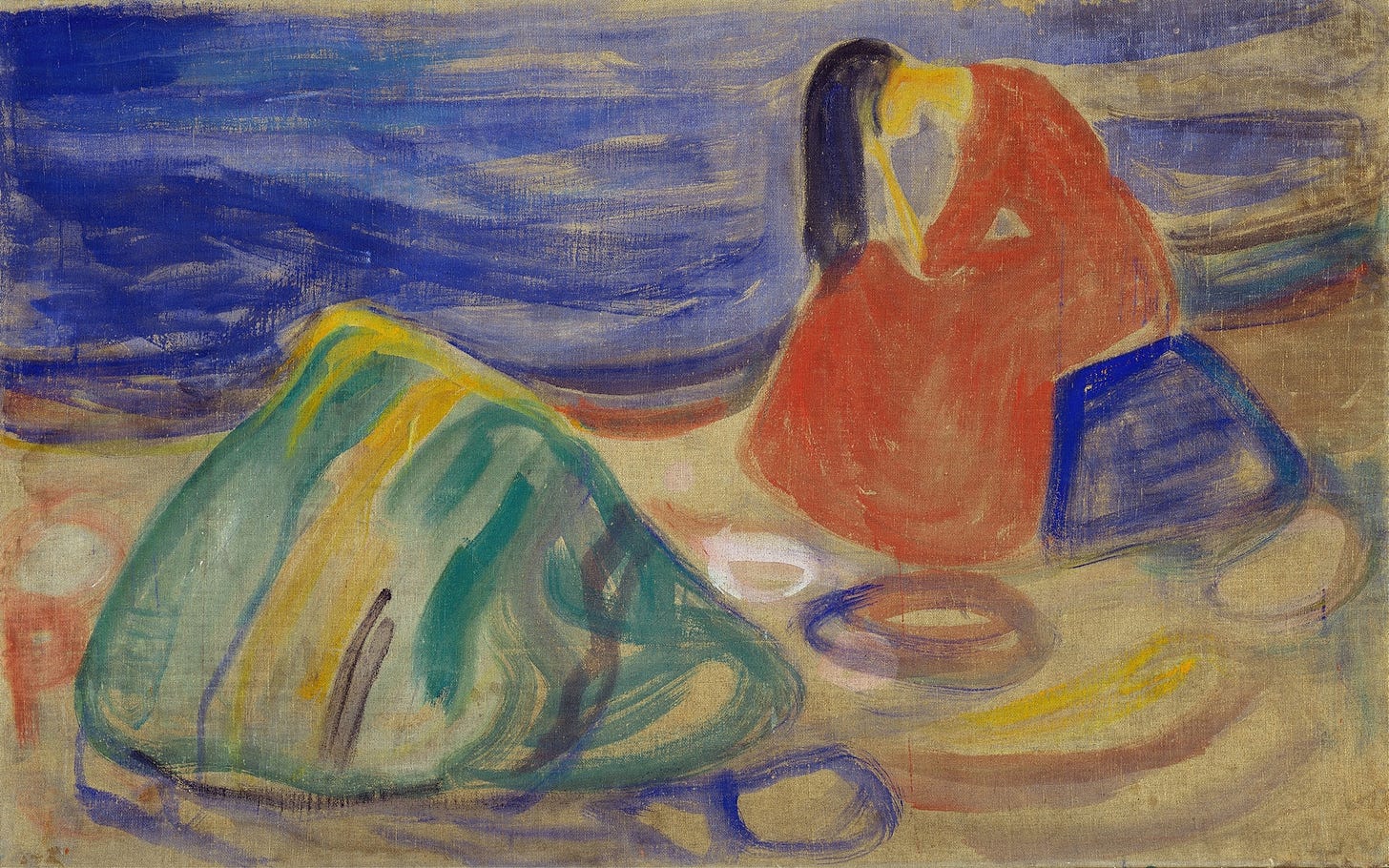Sweating the Small Stuff When the World’s on Fire
My incomplete, wildly inconsistent journey toward inner peace.
After the election, I published a piece called How I’m Staying Sane, which was about the importance of not pre-gaming misery. Things will be awful soon enough; don’t let those criminals steal your peace of mind prematurely.
I managed to take my own advice for a while. But this month, it fell apart. I’ve spent more hours than I care to admit feeling agitated over really trivial stuff—a perceived slight by another writer, a Facebook post about politics that went … the way you’d expect.
A good friend lost her home and all of her possessions in the L.A. fires. I’m chewing and stewing over these imaginary problems.
My best guess is that I’m using these petty grievances as a way to avoid my distress over the very real problems facing our country and the world now.
Still, I’ve been reading, writing and thinking about Buddhism and psychological wellness for 25 years. Shouldn’t I be better at this stuff?
When I first started meditating, I saw the practice as a way to improve myself. Meditating would help me think more clearly, make better choices, and free me of the grudges and resentments infecting my inner experience. It was like going to the gym—daily exercise would result in a better, happier version of me.
In many ways, it worked. Once I’d incorporated the practice into my life, I noticed I was usually calmer, happier and less judgmental toward myself and others.
But then I’d backslide. And then I’d backslide again. And again, and again.
I complained about this to my teacher. He explained that the point of meditation was not to reach a permanent state of bliss or harmony; it was to become familiar with my mind, to see all of those trivial irritations taking an outsized hold on my psyche.
Before I started meditating, I believed the churn. I used to think that if my mind was stuck on a particular irritation, then it must be important. Learning to observe these thoughts as they arose enabled me to see that they were just … thoughts. They were usually repetitive and not particularly interesting. The trick was not to eliminate them, but to simply let them run their course.
My teacher also gave me an analogy that I find helpful: a diamond in the mud.
The Buddhist view is that we all possess “Buddha nature”—a pure and luminous state of being that needs no improvement.
It’s easy to see Buddha nature in babies. No one looks at an infant and says, “Ugh, what a mess.” We see perfection. But by the time we reach adulthood, we start to view ourselves and each other as problems to be solved—we need to work through our issues, eradicate our flaws, and root out a basic sense of wrongness.
This is partly biological. Our brains aren’t wired to make us happy; they’re wired to help us survive threats like wild animals or warring tribes, as psychologist Elisha Goldstein told me several years ago.
We’re also heavily influenced by our Christian-capitalist culture—the one that says we’re born sinners, but with hard work we can redeem ourselves.
With Buddha nature, there is no original sin, no intrinsic wrongness that we must tackle before we can become fully realized human beings. Instead, we’re all precious gems buried in mud. The work is not to change who we are; it’s to clear off the mud.
I get annoyed with myself because I still get upset over stuff that doesn’t matter, but that’s the thing about mud, or garbage. You don’t take out the trash once; it’s a never-ending job because it keeps piling up.
Accepting my own Buddha nature means I must also accept the Buddha nature of the people who irritate me. I have to remember that they were once newborns, luminous and perfect, and they have their own piles of garbage to get through.
My teachers would say that includes the people now running the country. I’m not prepared to go that far. Sociopaths exist. But I do think that at least 95 percent of us are just buried in mud.
The years ahead will require a lot of strength. I don’t want to sweat the small stuff, but when I do sweat the small stuff, I don’t want to sweat that either.
So, I’ll do what I’ve done for 25 years. I’ll sit with the agitation as it arises, and drop my judgment over whether I “should” be feeling it. I’ll treat it like a child’s temper tantrum. I’ll let it pass, so that I can focus my attention on the things that really do matter.
And, yeah, I know—I need to get off Facebook.




Thank you for sharing this with us. Your struggle gives me much hope. It’s just what I needed to read today. The longer I practice (buddhism), the more I connect the things I’ve learned from my teacher and from reading, to things I learned from being a member of a Congregational church for 25 years and attending Al-Anon for 2+ years. Having faith in our buddha nature is like Jesus explaining the concept of “faith as small as a mustard seed”. Al Anon taught me one day at a time; let go and let (God); the serenity prayer; acceptance, not apathy; and the danger of holding expectations whether it’s of ourselves or others. When I sit on my mat with loving kindness meditation, I silently begin with a chant: “may I be filled with loving kindness, may I be safe, may I be strong, may I be at peace.” I then extend it to others I love and care about. but I’m still struggling to extend it to those that either don’t care about humanity at all, or actively wish us ill will.
Thank you, Sara. You so eloquently put to to words all the angst I’m feeling and trying to not feel. 🙏🏼